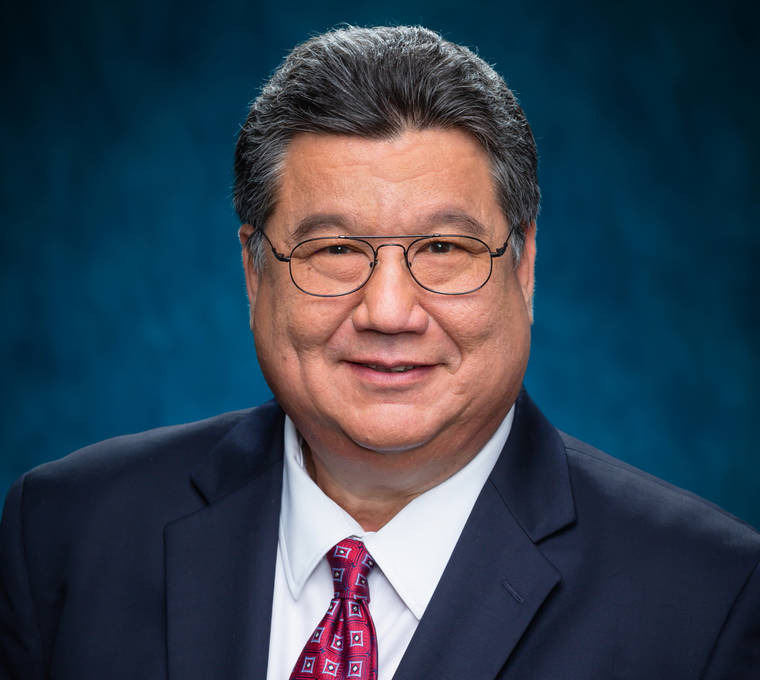State legislators are preparing for a new legislative session that likely will look different from any before.
The Legislature will convene Jan. 20, returning to session as the state continues to contend with the ongoing impacts of the COVID-19 pandemic.
“Normally we’d be so focused on policy issues … what kind of bills we’d be introducing. Normally, everybody’s back in their districts meeting with constituents, people are coming to the capital scheduling their appointments,” said state Senate President Ronald Kouchi, a Democrat representing Kauai and Niihau, said Monday during a live stream with the Honolulu Star-Advertiser. “But so much of our time and energy right now is simply allocated to what will be the process of day-to-day operations.”
Because legislative session is conducted on Oahu, what reopening tier the City and County of Honolulu is on dictates the operational standards of the Capitol building, he explained. Kouchi said the Legislature is prepared for people to resume entering the building.
Among COVID mitigation measures being taken at the Capitol, half the chairs were removed from conference rooms, television monitors were installed on the open-air lanai so people can watch meetings, a new protocol permits 5-10 testifiers at a time in a room and Plexiglas sneeze-guards were installed in front of the first point of contact in every office, he said.
“All of that is for us being open,” said Kouchi. “We are prepared (for other scenarios). We’ve increased bandwidth so if it is still closed and people can’t get into the Capitol, that we can take testimony remotely. … So we’re preparing for the worst, hoping for the best, but it seems that the infection rates that are still coming in on Oahu, that the building will likely be closed.”
In regard to the state budget, which is facing unprecedented shortfalls because of the ongoing pandemic, Kouchi said chairs for the Senate Ways and Means and House Finance committees continue to meet, and conversations with Gov. David Ige and members of his administration and others about what can be done are ongoing.
The state is projecting a $1.4 billion budget shortfall in the general fund for each of the next four years.
According to Kouchi, the committee leaders continue to look at possible tax exemptions that could be rescinded to generate additional revenues, the possibility of not filling positions vacated by retirements, whether there could be “re-imaging of certain operations in government” that could offer cost savings and whether some tax rates could be increased.
“I know there was talk about maybe $200,000, $250,000 or more earners … but there are really few people you would want to increase taxes on during this time,” he said. “So we’re hopeful we’ll have other options that will be available to us.”
Kouchi said legislators are unsure whether furloughs of state employees, which were announced last week by Ige, will start Jan. 1.
“I think it’ll be tied up in litigation, and so we’re preparing to try to find solutions that wouldn’t involve the furloughs because of the possibility that we wouldn’t prevail in a court case,” he said.
In addition to positive news Monday of the COVID-19 vaccine, which he said bodes well for the state’s economy because it will help with the return of more robust tourism, Kouchi said there also has been greater talk of additional federal coronavirus relief funding.
“And certainly if the state and local government aid is passed, that may allow us to avert the furloughs and not have that impact, especially on our students and the most vulnerable in our communities,” he said.
Kouchi said furloughs will be challenging for students missing instructional days of school, and as the economy restarts, “we need our people in the bureaucracy who are processing the paper work” if the state’s economy is going to rebound.
When asked what his thoughts are about ways to diversify Hawaii’s economy, Kouchi said hemp creates “incredible opportunity” beyond agriculture. The state, too, is looking for additional partners and working with the agricultural community to get produce otherwise targeted to visitors into the hands of other consumers, such as businesses and schools in Hawaii.
Increasing broadband and Wi-Fi connectivity also will play an important part in diversification, he said, with telehealth options and more people now working remotely.
“At this point, there’s been a lot of people relocating to Hawaii to do their work remotely because they’re not required to go into the office,” Kouchi said. “Those are … areas I think we can see great improvement. Then the governor and his team have been doing a great job finding the shovel-ready capital project(s) that we have funded and trying to make sure we have a healthy construction industry, and it would continue to infuse capital into this economy.”
When asked if the Legislature will address penalty provisions for the statewide mask mandate, Kouchi said “we’ll certainly bring it up and look at it.”
But while others have called for lawmakers to do that right away, Kouchi said the governor “thinks that’s a more robust conversation and that the public is certainly going to want to weigh in on it.”
“We haven’t gotten a draft bill yet and so I’m looking forward to getting that … ,” he said. “We’re anticipating that and certainly that’s going to be something we’ll take up.”
Email Stephanie Salmons at ssalmons@hawaiitribune-herald.com.






